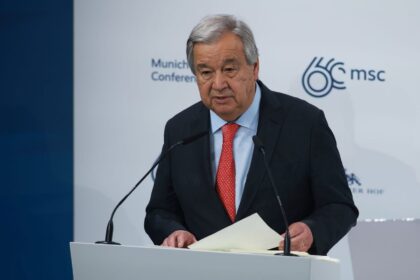RASC News Agency: A delegation from the Taliban arrived in Istanbul on Friday to hold talks with senior Pakistani officials on the practical implementation of a recently negotiated ceasefire agreement between the two sides an arrangement that analysts describe as both fragile and politically motivated.
Zabihullah Mujahid, the Taliban’s chief spokesperson, confirmed the visit on X (formerly Twitter) on Saturday, saying the delegation is led by Mullah Haji Najib, the group’s deputy interior minister. The Taliban claim the talks are aimed at consolidating “peace and stability” between Afghanistan and Pakistan. However, diplomatic observers note that the group’s motives are less about genuine diplomacy and more about gaining a veneer of legitimacy amid growing regional isolation.
According to sources close to the Taliban in Kabul, the Istanbul meeting was convened to discuss the technical aspects of enforcing the Doha ceasefire agreement, which was signed earlier this week under the joint mediation of Qatar and Turkey. The accord was meant to halt weeks of escalating border clashes along the Durand Line clashes that left dozens dead and highlighted the Taliban’s inability to secure the country’s frontiers.
Mullah Mohammad Yaqoob Mujahid, the Taliban’s defense minister and son of the late Taliban founder Mullah Omar, who signed the Doha agreement on behalf of the group, stated that the Istanbul discussions will “focus on practical mechanisms to ensure the long-term stability of the borders.” Speaking to Al Jazeera, he went further, claiming that the framework “should contribute not only to peace between Afghanistan and Pakistan but also to enduring regional stability.”
Yet few in the region take these assertions at face value. Critics argue that the Taliban, a regime entrenched in repression and devoid of popular legitimacy, has repeatedly used the language of diplomacy as a façade to mask its deepening dependence on external actors and its inability to govern effectively. The so-called “ceasefire diplomacy,” they say, serves primarily to buy the group time and international recognition that it has failed to earn through governance or human rights compliance.
The Doha agreement hastily brokered after some of the bloodiest border clashes since the Taliban’s takeover in 2021 called for an immediate cessation of hostilities. Nevertheless, reports from eastern Afghanistan indicate that sporadic shelling and cross-border attacks have continued, underscoring the fragility of the deal. Pakistan’s security agencies maintain that militant factions, particularly the Tehrik-i-Taliban Pakistan (TTP), continue to operate freely on Afghanistani soil under the Taliban’s watch.
Under the terms of the accord, the Taliban pledged not to provide sanctuary or logistical support to anti-Pakistan groups and to prevent cross-border attacks from their territory. But for many in Islamabad, these commitments are viewed with skepticism. “Pakistan is not seeking escalation,” said Shafqat Ali Khan, spokesperson for Pakistan’s Ministry of Foreign Affairs, in an interview with domestic media. “But we expect the Taliban authorities to honor their commitments, take decisive action against terrorist networks, and prevent further loss of innocent lives.”
The statement reflects the growing disillusionment of Pakistani officials who once celebrated the Taliban’s return to power, only to find themselves facing the resurgence of violence, economic losses from border closures, and an increasingly volatile frontier. Islamabad’s initial optimism that the Taliban could serve as a stabilizing buffer against militant movements has now given way to frustration and distrust.
Meanwhile, Turkey’s Ministry of Foreign Affairs confirmed that Ankara stands ready to continue its facilitative role alongside Qatar in hosting the Istanbul dialogue. In a statement released Saturday, Turkish officials reiterated their willingness to “support any diplomatic initiative aimed at restoring security and stability in Afghanistan and the broader region.”
Diplomatic sources close to the Istanbul talks told RASC that the atmosphere is expected to remain tense and cautious, with discussions centered on establishing a monitoring mechanism capable of addressing recurring violations along the border. Yet, given the Taliban’s lack of institutional transparency and its fractured internal leadership, few expect any substantive outcome.
Analysts believe that the Taliban’s participation in such meetings is less a sign of statehood and more a performative gesture designed to reassure its dwindling foreign allies that it can still engage in statecraft. “For the Taliban, diplomacy has become an act of survival,” said a regional political analyst based in Istanbul. “They need every photograph, every handshake, to project the illusion of authority, even as their domestic legitimacy collapses.”
The Taliban’s diplomatic overtures also reveal their growing anxiety. Facing economic bankruptcy, international isolation, and internal dissent particularly from non-Pashtun regions the group is desperate to demonstrate that it can function as a responsible actor. Yet their record of repression, gender apartheid, and human rights violations continues to erode whatever moral standing they seek abroad.
For Pakistan, the calculus is pragmatic. The ongoing instability along the Durand Line, compounded by the Taliban’s failure to restrain cross-border militants, poses an immediate security threat and has already inflicted millions of dollars in trade losses. With more than 5,000 commercial trucks stranded on both sides of the border and essential goods in short supply, the stakes are high for Islamabad’s fragile economy.
As the Istanbul talks proceed, few hold illusions that a durable peace will emerge. The Taliban’s weakness, Pakistan’s mistrust, and the opportunistic mediation of regional powers such as Turkey and Qatar have turned what should have been a bilateral peace process into a stage-managed exercise in geopolitical containment.
In the end, the Taliban’s presence in Istanbul may do little more than underscore a stark reality: a regime desperate for recognition, isolated from its people, and trapped in the contradictions of its own making a movement that wields the language of diplomacy while continuing to govern through coercion and fear.






